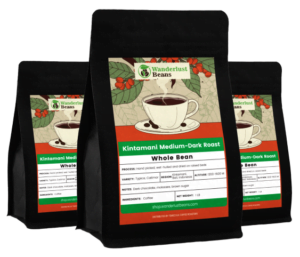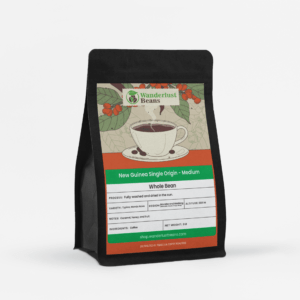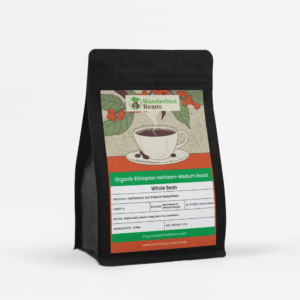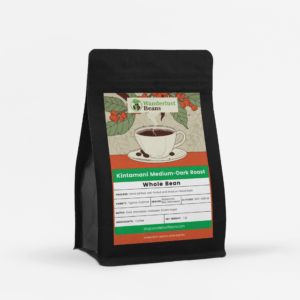In the realm of coffee, organic alternatives are increasingly gaining recognition for their superior health benefits and environmental advantages. The salient features of such coffees, including higher antioxidant levels and reduced exposure to synthetic chemicals, cater to health-conscious consumers.
Moreover, select brands such as Lifeboost Coffee and Stumptown Coffee Roasters have elevated the organic coffee experience with their premium blends. Yet, one might wonder how these coffees truly compare to their non-organic counterparts and if the benefits justify the cost.
Key Takeaways
- Organic coffee reduces chemical exposure and potential health risks, promoting overall health.
- High antioxidant levels in organic coffee, especially light roasts, offer significant health benefits.
- Quality organic beans, such as those from Stumptown or Counter Culture Coffee, ensure the healthiest choice.
- Different brewing methods can enhance the health benefits and flavor profiles of organic coffee.
Understanding Organic Coffee
Delving into the realm of organic coffee, it's crucial to understand that this healthful beverage is cultivated without the use of synthetic pesticides and fertilizers, thereby significantly reducing exposure to harmful chemicals. Organic coffee farms rigorously adhere to environmentally friendly practices, further augmenting its health benefits and contributing to a sustainable ecosystem.
These farms must meet stringent standards to obtain organic certification. This seal of approval ensures that your morning brew is a product of ethical farming practices that prioritize the health of the environment and the consumer. The absence of synthetic chemicals in the cultivation of organic coffee aids in fostering healthier soil, which in turn, significantly influences the taste and quality of the coffee.
In addition to personal health benefits, choosing organic coffee supports sustainability and promotes the well-being of the planet. Consumers become part of a community that values the environment and ethical practices. Moreover, organic coffee is believed to boast a richer flavor profile, enhancing the overall coffee-drinking experience. In essence, organic coffee provides a high-quality, flavorful brew, steeped in health benefits and environmental responsibility.
Benefits of Organic Coffee
The consumption of organic coffee offers a myriad of benefits, primarily stemming from its cultivation process that abstains from the use of synthetic pesticides and fertilizers. Organic coffee beans are grown in healthier soil, free from harmful chemicals, which not only enhances the taste but also reduces potential health risks associated with chemical exposure.
The organic label on coffee packs signifies adherence to stringent standards set by the USDA Organic Certification. This reflects the commitment of organic coffee companies to ethical farming practices and sustainability. Growing coffee organically means supporting a farming system that promotes biodiversity, replenishes and maintains soil fertility, and reduces the risk of pollution from harsh agricultural chemicals.
Choosing to consume organic coffee is an investment in personal health and environmental sustainability. The benefits of organic coffee extend beyond the individual, contributing to the wellbeing of farmers, wildlife, and the overall ecosystem. Moreover, it cultivates a sense of belonging among consumers who choose to support ethical and sustainable practices.
Organic Vs Regular Coffee

In comparing organic and regular coffee, it is essential to clarify the defining characteristics of each. Organic coffee is delineated by its cultivation process, which excludes synthetic chemicals, whereas regular coffee does not necessitate such strict regulations.
A critical analysis of their respective health impacts will illuminate the superior choice from a physiological perspective.
Defining Organic Coffee
When comparing organic and regular coffee, it becomes clear that organic coffee, certified by organizations like the USDA, is grown without the use of synthetic pesticides or fertilizers, thereby supporting healthier soil and ecosystems. This cleaner option not only promotes sustainable agriculture but also offers a superior taste and quality.
To create a vivid image, consider these three points:
- Organic coffee is grown in a way that encourages healthy soil, fostering rich and diverse ecosystems.
- Without synthetic pesticides, organic coffee provides a safer, cleaner option for consumers, reducing exposure to potentially harmful chemicals.
- The USDA certification ensures that organic coffee meets stringent standards, reinforcing the commitment to sustainable agriculture and quality.
Regular Coffee Explained
Contrasting sharply with its organic counterpart, regular coffee often contains pesticides and synthetic fertilizers, contributing to environmental issues such as soil degradation and potential exposure to harmful chemicals. This non-organic production method can negatively influence the coffee's antioxidant levels, possibly resulting in a less cleaner taste.
Conversely, organic coffee cultivation supports sustainable farming, which not only seeks to limit environmental impact but also aims to foster a healthier coffee product. This method often utilizes fair trade practices, underscoring a commitment to the ethical treatment of farmers and workers alike.
For coffee connoisseurs who value both their health and the environment, choosing organic coffee can be a conscious stride towards a more sustainable and ethical coffee consumption habit.
Comparing Health Impacts
Shifting our focus to the health implications, it's crucial to explore the comparative impacts of organic and regular coffee on human well-being, particularly in the context of chemical exposure, antioxidant levels, and potential presence of mycotoxins.
- Chemical Exposure: Organic coffee is grown without synthetic pesticides. This means drinking it reduces your risk of exposure to harmful chemicals. Regular coffee, however, may contain pesticide residues that potentially impact health negatively.
- Antioxidant Levels: Organic coffee is believed to have higher antioxidant levels due to its natural cultivation methods.
- Mycotoxins: Studies suggest that organic coffee may have lower levels of mycotoxins, which are harmful to health.
Choosing organic coffee not only supports your health but also promotes sustainable farming and environmental conservation.
Top Organic Coffee Brands

In the realm of organic coffee, several brands have distinguished themselves through their commitment to quality, sustainable practices, and unique flavor profiles. One of the top organic coffee brands is Stumptown Holler Mountain blend, recognized as the best overall organic coffee. It captivates with its rich flavor profile, making each sip a testament to high-quality organic coffee.
Another commendable brand is Real Good Coffee Co. Dark Roast. This less-expensive option does not compromise on quality, offering a robust and satisfying brew. For medium roast organic coffee lovers, Counter Culture Coffee Apollo, with its citrusy flavor notes, and Stumptown Coffee Roasters Organic Ethiopia Guji are excellent choices.
The table below provides a snapshot of these top organic coffee brands:
| Brand | Specialty | Suitable For |
|---|---|---|
| Stumptown Holler Mountain blend | Rich flavor profile | Best overall organic coffee |
| Real Good Coffee Co. Dark Roast | Affordable, High-quality | Budget-conscious consumers |
| Counter Culture Coffee Apollo, Stumptown Coffee Roasters Organic Ethiopia Guji | Citrusy flavor notes, Versatile brewing methods | Medium roast organic coffee enthusiasts |
Among these brands, consumers can find a perfect cup that suits their palate and brewing preferences, bringing a sense of belonging in the organic coffee community.
Light Roast Organic Coffee Options
Light roast organic coffee offers distinct benefits, such as higher caffeine content and preservation of delicate, fruity flavors due to its shorter roasting time.
Quality organic beans play a crucial role in obtaining a superior light roast, necessitating careful selection.
Further, various brewing methods can significantly influence the final taste profile, making them an essential aspect to explore for coffee connoisseurs.
Benefits of Light Roast
For coffee enthusiasts who prefer a milder taste, light roast organic coffee offers a myriad of benefits due to its shorter roasting time, including higher caffeine content and a more potent concentration of antioxidants. This brighter, more acidic flavor profile provides a refreshing morning pick-me-up, while its delicate notes showcase the natural flavors of the beans.
- Antioxidant Powerhouse: Light roast coffee retains more antioxidants, playing a crucial role in fighting free radicals and promoting overall health.
- Caffeine Kick: A cup of light roast coffee contains more caffeine, making it a perfect energy booster.
- Delicate Flavor: Light roast coffee exhibits a brighter, more acidic profile, highlighting subtle hints of fruit and florals, an ideal choice for those desiring a gentler coffee experience.
Selecting Quality Organic Beans
When it comes to selecting high-quality light roast organic coffee beans, it's crucial to consider factors such as the bean's origin, roasting temperature, and flavor profile.
Organic light roast coffee is known for its elevated acidity and vibrant flavors, which reflect the bean's origin and the roasting process. A product of lower roasting temperatures, light roast organic coffee retains more of the bean's natural flavors and aromas, offering a more nuanced taste experience.
Notably, these beans contain more caffeine and antioxidants than darker roasts, contributing to their health benefits. Some popular options include Lifeboost Coffee Light Roast and Lavazza Organic ¡Tierra! Coffee.
Brewing Methods Explored
Having discussed the importance of selecting quality organic beans, it's equally imperative to consider the brewing methods that best highlight the nuanced flavors of light roast organic coffee. This type of coffee, known for its bright, vibrant flavors, often showcases fruity and floral notes.
To truly embrace the delicate, nuanced flavors, consider these brewing methods:
- Pour-Over: This method emphasizes the coffee's acidic nature, unveiling a refreshing, complex experience.
- Chemex: Known for its clarity and purity, it accentuates the floral and fruity undertones.
- AeroPress: Extraction under pressure intensifies the flavor, helping to capture the bean's natural characteristics.
Medium Roast Organic Coffee Selections
In the realm of organic coffee, medium roast selections hold a prominent position due to their balanced flavor profile, exhibiting moderate acidity and a rich blend of caramel, chocolate, and nut undertones. These coffees are organic fair trade products, roasted to a medium level to perfectly preserve the bean's inherent flavors and aromas. The roasting process brings out notes of caramel, enhancing the richness of the coffee, while chocolate undertones add depth to the overall flavor.
Medium roast coffee offers versatility in brewing methods. It is suitable for drip, pour-over, and French press techniques, providing coffee enthusiasts with a range of options to extract the maximum flavor. This versatility, combined with well-rounded characteristics of medium roasts, contributes to their popularity.
The moderate acidity of medium roast coffee provides a pleasing brightness, balancing the rich, complex flavors. This acidity level is less pronounced than in light roasts, resulting in a smooth, satisfying taste. The combination of balanced acidity, richness, and full-bodied flavor makes medium roast organic coffee a delightful choice for those seeking a healthful, flavorful, and ethically sourced coffee experience.
Dark Roast Organic Coffee Choices
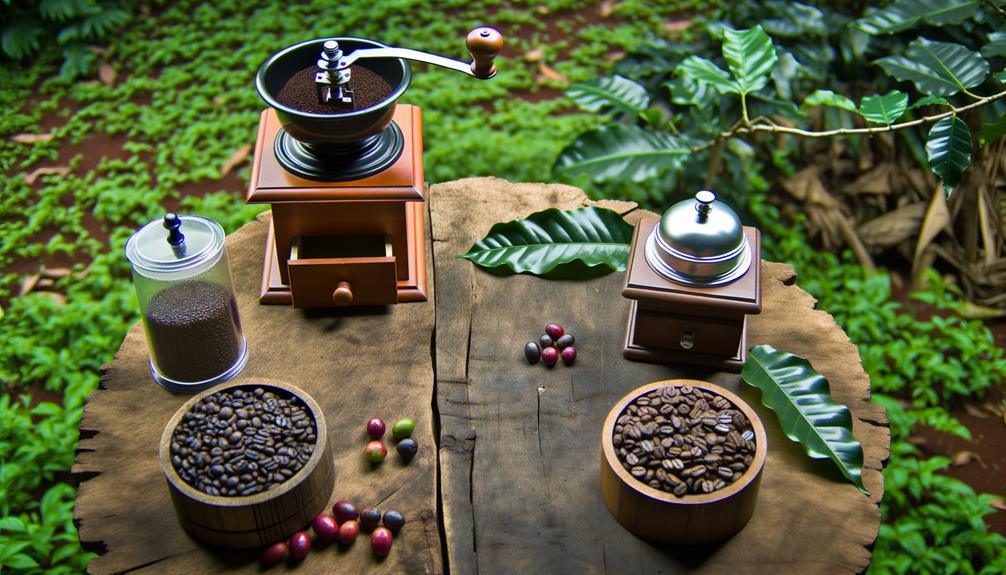
Frequently favored by individuals with a preference for a robust, intense flavor, dark roast organic coffee offers a unique sensory experience characterized by its rich, caramelized sugars and oils that are brought out during the roasting process. This type of coffee, recognized for its full-bodied and bold taste, is not only a delight for the palate but also a healthier option due to its low acidity.
The following list offers a vivid representation of the best dark roast organic coffee choices:
- Stumptown Coffee Roasters: Known for their remarkable quality, Stumptown's organic beans undergo a dark roasting process that results in a strong caffeine kick and a taste profile that is both rich and complex.
- Kicking Horse Coffee: This brand offers a full-bodied dark roast that is smooth and low-acid, making it a suitable choice for those with sensitive stomachs.
- Equal Exchange Organic Coffee: Their dark roast variant provides a well-balanced cup with a robust flavor that is both satisfying and invigorating.
These choices provide a perfect blend of quality and taste, ensuring a satisfying cup of dark roast organic coffee for all enthusiasts.
Decaf Organic Coffee Varieties
In the realm of decaf organic coffee varieties, there is a broad spectrum to consider, particularly in terms of health benefits, esteemed brands, and brewing techniques.
These varieties maintain the health advantages of regular coffee, such as a rich supply of antioxidants and potential disease-combatting properties, while significantly reducing the caffeine content.
The subsequent sections will provide a comprehensive analysis of these elements, guiding you towards making an informed choice in your coffee selection.
Health Benefits of Decaf
Decaffeinated organic coffee varieties, often processed using natural methods such as the Swiss Water Method, offer numerous health benefits while minimizing exposure to caffeine and potentially harmful substances.
- Caffeine Free: These organic coffee varieties contain minimal to no caffeine, making them ideal for those sensitive to caffeine or looking to reduce their intake.
- Rich in Antioxidants: Despite the decaffeination process, these coffee varieties retain their high antioxidant levels, which can aid in combating oxidative stress in the body.
- Reduced Mycotoxin Risk: Organic farming practices and natural decaffeination processes significantly lower the risk of mycotoxin contamination, enhancing the overall health benefits of these decaf coffee varieties.
Embrace the benefits of decaf organic coffee and belong to a community devoted to health-conscious choices.
Top Decaf Organic Brands
When it comes to decaf organic coffee, several noteworthy brands stand out for their commitment to natural decaffeination methods, organic farming practices, and overall quality. Four Sigmatic, Lifeboost, and Equal Exchange are leading brands that use the Swiss Water Process, a chemical-free method that gently removes caffeine while preserving the coffee's natural flavors and antioxidant benefits.
These brands offer decaf organic coffee with minimal to no caffeine, making them a preferred choice for those sensitive to caffeine or seeking a healthier coffee alternative. By choosing their products, consumers are assured of a clean, chemical-free cup that still provides the rich, robust taste of coffee, but without the jitters or sleep disruption often associated with regular caffeinated varieties.
Brewing Decaf Organic Coffee
Having examined the top brands in decaf organic coffee, we now turn our attention to the brewing process and the variety of decaf organic coffees available in the market.
- Decaf organic coffee undergoes a natural Swiss Water Process for decaffeination, reducing caffeine content to minimal or zero levels. This ensures the same health benefits and rich flavor profile as regular coffee without the stimulating effects of caffeine.
- Some decaf organic coffees may contain trace amounts of caffeine as a result of the decaffeination process. However, these amounts are significantly lower than those found in regular coffee.
- Decaf organic coffee is an excellent choice for anyone seeking to enjoy the taste and benefits of organic coffee, meticulously brewed to offer a caffeine-free experience.
Choosing Your Organic Coffee
In the selection of your organic coffee, it's crucial to look for the USDA Organic certification, ensuring the absence of synthetic pesticides and fertilizers. This certification guarantees your cup of joe supports sustainable and ethical practices, contributing to an ecosystem that thrives.
Equally important is the bean type and origin. Certain regions yield distinct flavor notes, from fruity Ethiopian beans to the chocolatey undertones of Colombian varieties. Your coffee's origin can be a delightful exploration of global cultures, right in your mug.
You must also consider the roast level. Light, medium, or dark roasts each deliver unique taste profiles, allowing you to tailor your coffee experience to your preference.
To summarize the key factors in choosing your organic coffee, refer to the table below:
| Consideration | Significance |
|---|---|
| USDA Organic Certification | Ensures absence of synthetic pesticides, supports sustainability |
| Bean Type & Origin | Influences flavor notes, offers cultural exploration |
| Roast Level | Dictates strength and taste profile |
| Flavor Notes | Adds depth to your coffee experience |
| Ethical Practices | Promotes fair trade, supports coffee farming communities |
A meticulously chosen organic coffee can elevate your daily rituals, fostering a sense of belonging and connection.
Brewing the Perfect Organic Coffee
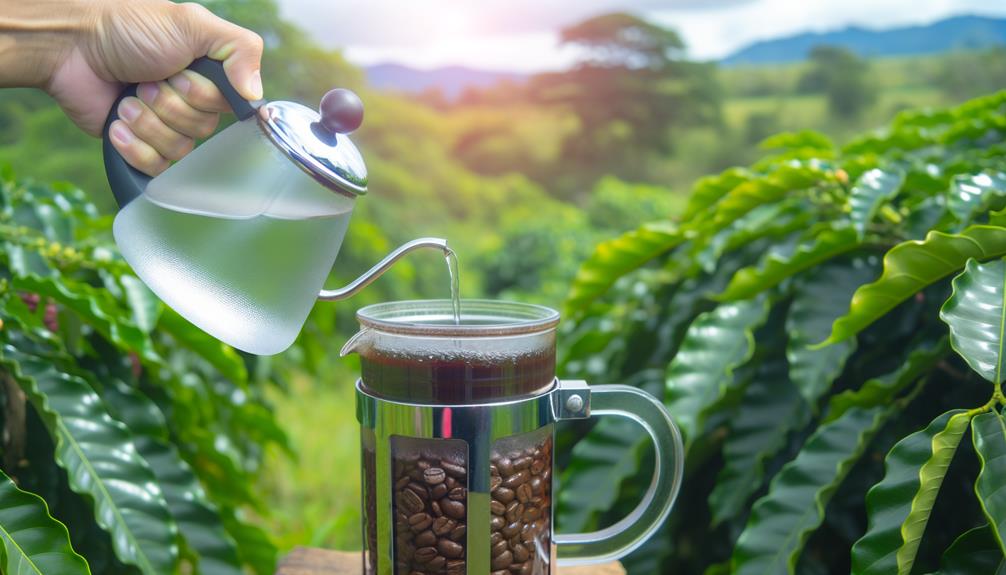
After meticulously selecting your organic coffee, the next step involves mastering the art of brewing to extract the best flavor and aroma from your beans. Ensuring that your coffee meets organic standards is just the beginning; the brewing process is equally crucial.
To achieve perfection in each cup, consider these three steps:
- Grind Your Beans: Freshly ground whole beans yield the best flavor. The grind size should be adjusted according to the brewing method. For instance, a coarse grind is suitable for a French press, while espresso requires a fine grind.
- Water Quality and Temperature: Filtered water enhances the natural taste of your coffee. The ideal temperature range is between 195-205°F. Too hot, and your coffee may taste bitter; too cold, and the flavors won't fully extract.
- Choose Your Brewing Method: Experiment with different methods such as pour-over, French press, or espresso to find your preferred taste profile. Each method extracts flavors differently, influencing the overall taste of your roast.
Lastly, clean your equipment regularly. Residue build-up can affect the taste. In the journey towards perfect organic coffee, every step, from selecting quality beans to the final brewing, matters.
Frequently Asked Questions
What's the Healthiest Coffee You Can Buy?
The healthiest coffee is typically Arabica, due to its high antioxidant content. It's beneficial to opt for fair-trade, freshly roasted beans, brewed using a method that preserves antioxidants. Decaf can also be a healthy choice.
Which Coffee Has the Least Amount of Chemicals?
Organic coffee, especially from chemical free brands, contains the least chemicals, minimizing pesticide exposure. The Fair Trade impact, eco-friendly packaging, and decaffeination process further reduce chemical processing, acrylamide levels, and related health risks.
What Is the Healthiest Version of Coffee?
The healthiest version of coffee incorporates antioxidants, considers caffeine effects, and is preferably decaf. Brewing methods, health-conscious additives, and roasting impact are key. Opting for fair trade coffee supports ethical sourcing, enhancing overall wellbeing.
Is It Healthier to Drink Organic Coffee?
Drinking organic coffee can indeed be healthier due to its organic benefits such as pesticide reduction. Despite potential taste differences and higher cost, it's worth considering for its organic certification and positive environmental impact.
Conclusion
In conclusion, investing in organic coffee is not only beneficial for individual health but also promotes sustainable farming practices.
A staggering 12.5 million tons of synthetic pesticides are used globally each year, highlighting the urgency for organic alternatives.
By choosing organic coffee, consumers can contribute to reducing this number, while savoring a cleaner, smoother coffee experience.
Therefore, the shift towards organic coffee consumption signifies an essential step in global health and environmental preservation.

